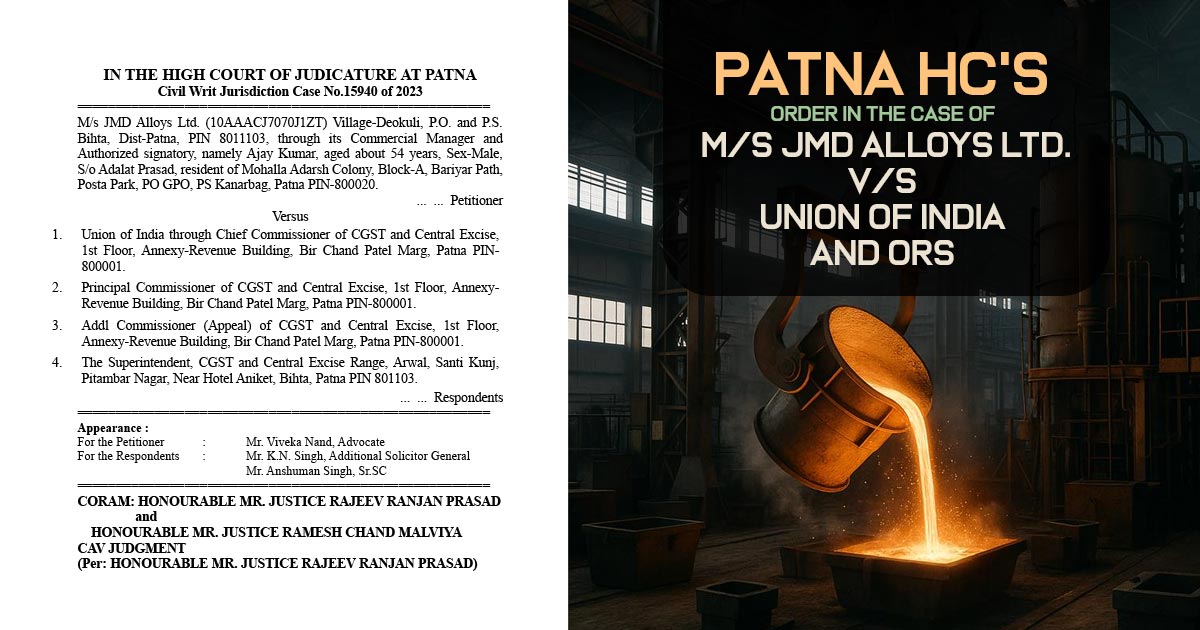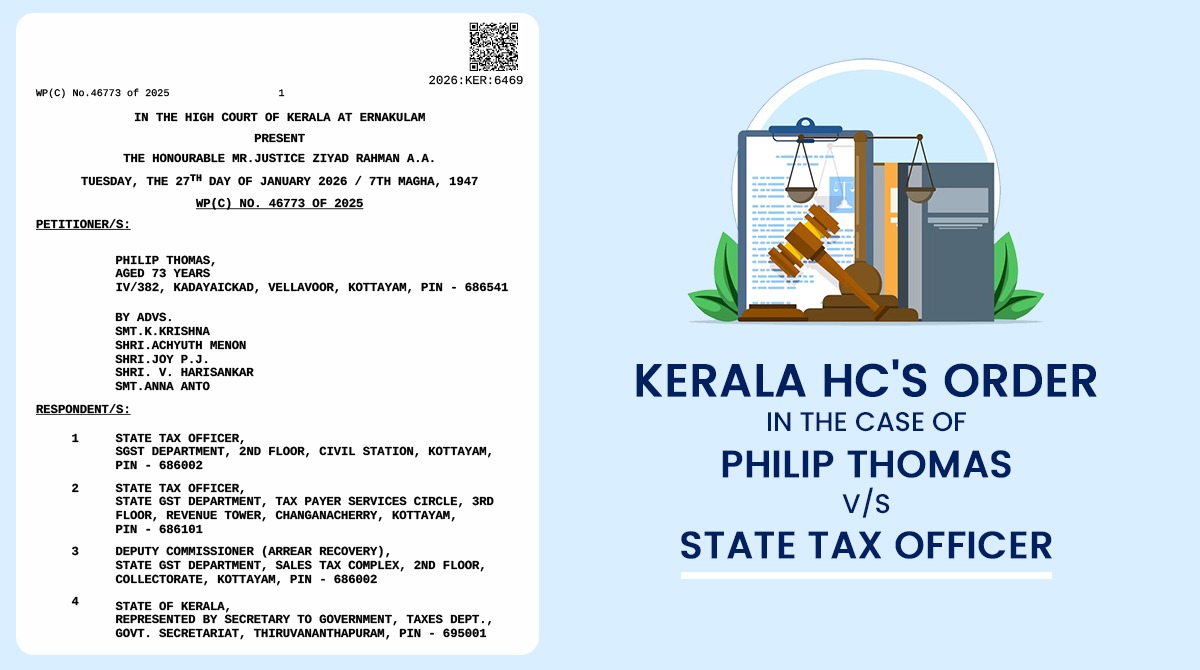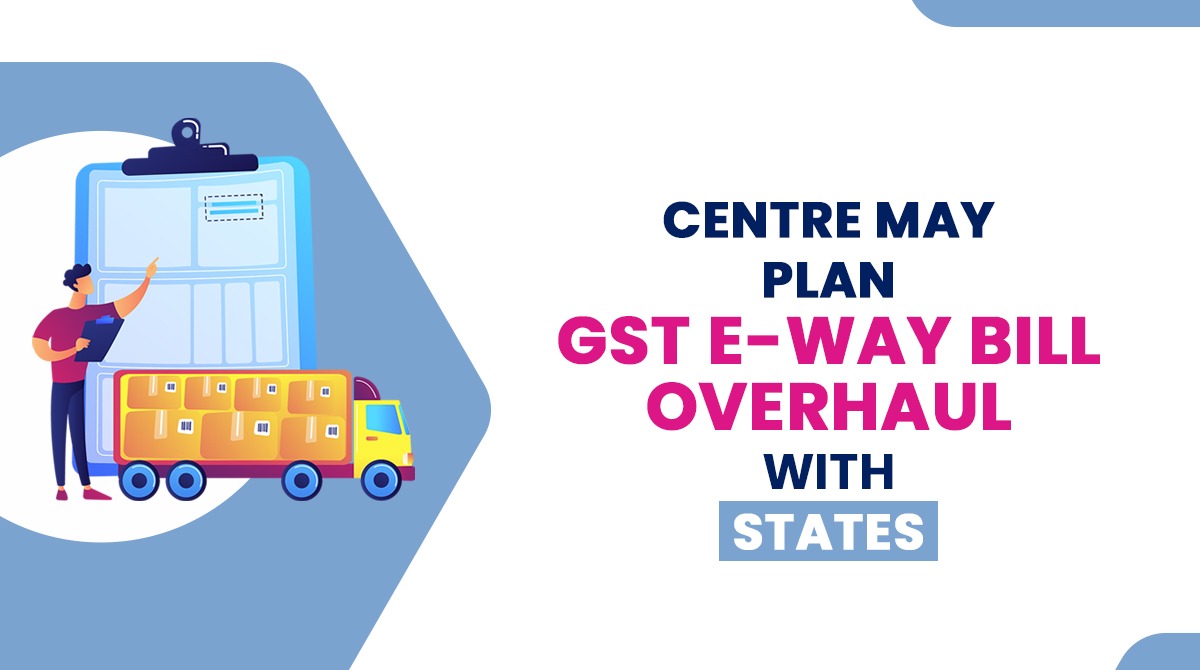
While keeping the recovery of ₹8,62,566 as ineligible CENVAT credit, the Patna High Court ruled that transitional credit cannot be availed for capital goods received after GST implementation.
The Division Bench of the High Court, comprising Justices Rajeev Ranjan Prasad and Ramesh Chand Malviya, ruled that “The distinction in the matter of giving the benefit of CENVAT credit on capital goods during the transitional period may be found in Section 140 of the CGST Act. While this provision enables an assessee to carry forward and take credit of unutilized CENVAT credit paid on inputs as well as on capital goods, in the manner as may be prescribed and subject to the conditions contained in the provisions, sub-section (5) of Section 140 makes a distinction between the capital goods and inputs. This provides that a registered person would be entitled to take credit of eligible duties and taxes in respect of inputs or input services received on or after the appointed date but the duty on tax in respect of which has been paid by the supplier under the existing law.”
The ruling described above was provided in a Civil Writ Jurisdiction Case in which the applicant company submitted a writ petition asking for the quashing of the order in appeal on 22.05.2023 passed by the Additional Commissioner (Appeal) of CGST and Central Excise, Patna. Also, the applicant claims an easier transfer of transitional CENVAT credit of ₹8,62,566 on capital goods invoiced in June 2017 but obtained at the factory premises in July 2017, after the commencement of the GST regime.
In this case, M/s JMD Alloys Ltd., a manufacturer of MS Bars, had placed orders for capital goods in June 2017. The goods were dispatched under 11 excise invoices and were received at the factory premises of the applicant in July 2017.
Under the old regime, the duty had been paid, and the applicant had filed Form TRAN-1 to claim credit for the same as per the transitional provisions of the CGST Act. Though the jurisdictional superintendent of CGST rejected the credit because it pertained to capital goods received after the specified date.
It was claimed by the applicant that under the CENVAT Credit Rules, 2017, the term inputs is required to be interpreted to include capital goods, and no regulatory bar was there to refuse transitional credit in such cases.
Read Also:- Patna HC Upholds GST Registration Cancellation, Emphasises Timely Use of Legal Remedies
The same interpretation has been rejected by the High Court, citing that the difference between the inputs and capital goods is specified in the law. The court traced the legislative scheme of the CGST Act and its transitional provisions, noting that the previous statute permits the credit on the capital goods, but under the GST regime, the transitional credit on the capital goods obtained post 01.07.2017 is not considered under law.
The Court expressed, “This Court finds that the CENVAT Credit Rules, 2017 has superseded CENVAT Credit Rules, 2004 and a conjoint reading of the provisions of GST Act and CENVAT Rules, 2017 leaves no room for taking any different view”.
The court, on those grounds, has concluded that no infirmity was there in the impugned orders passed via the adjudicating and appellate authorities and moved to dismiss the writ petition.
As per that, the writ petition was dismissed as devoid of merit.
| Case Title | M/s JMD Alloys Ltd. V/S Union of India and Ors |
| Case No. | 15940 of 2023 |
| Counsel For Appellant | Mr. Viveka Nand, Advocate |
| Counsel For Respondent | Mr. K.N. Singh, Additional Solicitor General Mr. Anshuman |
| Patna High Court | Read Order |








